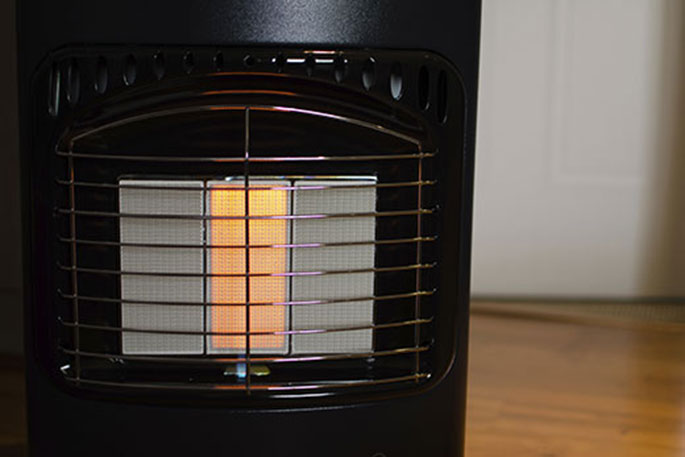A gas heater catching fire in Whakatane has sparked fire safety reminder from Bay of Plenty Fire Services.
The callout from overnight has crews educating residents about ways to minimise the risk of fire through winter.
'This fire was caused by a gas heater which had its bottle catch on fire,” says fire safety investigator John Rewi.
'This is believed to be caused by a loose connection, where gas has escaped from it, and it's ignited and caused a fire.”
He says it raises some key points about fire safety.
'We're coming into winter and last night's temperature was a shock to everyone. We had snow on Mount Putauaki, Mount Tarawera and it was really cold.
'This means heaters are going to be pulled out of the shed, put in the house and turned on.”
John says there's many ways to keep safe.
'If you're going to be connecting gas heaters, use a soapy water mixture and make sure you spray all the joints.
'See if there are any bubbles coming off them and if you've got bubbles, you've got troubles,” he says.
'Gas heaters really do need to be checked by an expert, such as a plumber, because the emissions from burnt gas can kill people so we need to make sure it is burning clean.”
He identifies fires and electric heaters as further risks.
'I noticed a lot of chimneys burning last night, so if you are using a fire make sure your chimneys are cleaned and safe to use, and try to use good, clean and dry wood.
'Electric heaters, particularly bathroom heaters which are attached to the wall and sit there all day, can also cause a lot of fires because dust builds up in them.
'They don't get used or turned on in summer, then suddenly you turn them on and all that dust starts burning.”
Electric blankets are another risk, says John.
'If they have creases they need to be checked, in fact I would advise everyone to check them before putting them on their bed.
'Kinks can cause a break in the wiring and that causes fire. They can also overheat.”
John says rodents can also present a fire risk to homes during winter.
'If you hear vermin in the walls or up the ceilings you need to do something about it because nine times out of 10 they're in there chewing wiring.
'You need to make sure all your wiring is good, so if you hear it get a rodent specialist in.”
John identifies another recent fire in the Bay of Plenty as raising some key safety points not only about drying clothes, but also on the use of smoke alarms.
'A family were in the house, the drier was turned on to dry clothes and it caught fire.
'The incident is significant, firstly because it highlights to us that people don't understand what can actually catch fire.
'What happened was the drier was fine, that wasn't the issue, however the combustible material of the items that were in the drier spontaneously ignited.
'If you put a whole heap of towels in the drier and turn it on, all of that heat is absorbed by them and stays in it, even if you turn the drier off the heat can still build up.
'The fire was caused by spontaneous combustion and the house was a total write-off.”
This raises a good need to consider how to dry clothes safely, says John.
'When you're drying clothes in front of a fire or heater, you should apply the meter-heater ruling.
'Keep all your combustibles, that's clothing or anything, at least a meter from your heating system,” he says.
'Another significant point about this fire was that there was no smoke alarms at the property.
'I'm beating the drum on smoke alarms again, and do people listen? No they don't. They think it's not going to happen to them.
'You can get them for as little as $9 and it's a small investment which will always pay off.”
He says around 30 per cent of fires he's attended recently have been at properties which did not have working smoke alarms installed.
John says there's room for improvement.



0 comments
Leave a Comment
You must be logged in to make a comment.